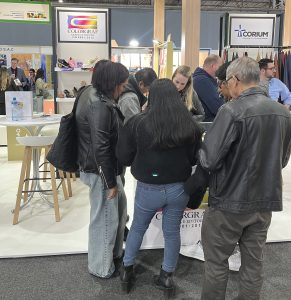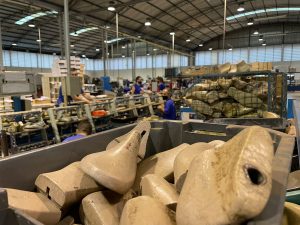Interest Rates Restrain Economic Growth in 2025
Yesterday, on the 27th, the Brazilian Association of Companies of Components for Leather, Footwear and Artifacts (Assintecal) held its first online meeting of the Market Intelligence Group for 2025. The session, led by industry consultant and economics doctor Marcos Lélis, highlighted that high interest rates are expected to impact Brazilian economic growth in 2025.

Yesterday, on the 27th, the Brazilian Association of Companies of Components for Leather, Footwear and Artifacts (Assintecal) held its first online meeting of the Market Intelligence Group for 2025. The session, led by industry consultant and economics doctor Marcos Lélis, highlighted that high interest rates are expected to impact Brazilian economic growth in 2025.
According to the economist, the global economic landscape, which was already difficult last year, has a new element this year: the Trump effect. He explained that during Donald Trump’s first term, the taxation of Chinese imports by the United States helped boost Brazilian exports in the sector. However, the countries that gained the most market share were the Dominican Republic, Vietnam, and Indonesia.
Another factor that could affect the sector’s performance is the attempt to control inflation with consecutive increases in Brazil’s interest rates. Lélis projects that the Selic rate could reach 15% by the end of 2025. “This is a trend we see worldwide. It seems we still can’t return to pre-pandemic normalcy,” he said. Lélis noted that Brazilian inflation has been particularly impacted by fuel and food prices. While the IPCA (consumer price index) was at 4.56% in January, gasoline inflation was 10.71% and food inflation was 7.25%. “In the case of food, I often say we’ll have to get used to feeling the effects of climate change on supermarket shelves,” he commented.
Lélis believes that the Central Bank, acting alone, will no longer be able to curb the effects of inflation—especially food inflation—by raising interest rates. “It needs support, a new approach from the public sector to help contain the effects of climate change.” Since 2020, according to the economist, food inflation in Brazil has risen by more than 55%.
Projections for 2025
With the high interest rates, economic growth is expected to be slower in 2025. According to the Focus report, the GDP is projected to grow by 2% this year, with the IPCA reaching 5.51%, well above the 3% target. “We are seeing a market slowdown, which has been felt since late last year, and this should impact GDP growth,” he said.
The Group
Coordinated by Lélis, Assintecal’s Market Intelligence Group meets every two months to provide updated figures and projections based on the national and international market outlook. The meeting is open to Assintecal members. For more information, please contact: relacionamento@assintecal.org.br.
Read also









